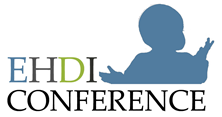| Abstract Information: |
| Title: |
Powerful Strategies in Motivating Hospitals to Improve Loss to Follow-up |
| Primary Track: |
7-Program Evaluation and Quality Assurance
|
| Keyword(s): |
Follow-up, program improvement, NICHQ, strategies, data |
Abstract: |
Loss to follow-up continues to be a challenge that hospitals and EHDI programs face. Numerous EHDI stakeholders and agencies have examined loss to follow-up, viewing it from every possible angle to gain an understanding of how to improve it. Due to the various points in the process where a “hand-off” is made, opportunities exist for babies to fall through the cracks. State EHDI programs are working diligently to identify those opportunities and to improve systems of care to better serve babies and families.
Hospitals are the first step in the EHDI process. Their role in connecting a family to the next step is critical in ensuring that babies get through the system and receive the follow-up they need. In addition, their strength or weakness in getting babies back can directly impact the work load on the state follow-up program. Hospitals need training, guidance, protocol recommendations, and strategies to help them better serve their communities and increase the number of babies return for follow-up.
In 2006 and 2007 the Arizona state follow-up program participated in the NICHQ collaborative. Several change concepts (“tests of change”) to strengthen the links between the hospital, family and the medical home were identified and tested. Data collection demonstrated that when used together the number of babies that returned were greater than 90%.
As a result, the NICHQ tests are being implemented in hospitals throughout the state. Several other motivating follow-up strategies have also been identified and are being incorporated. Hospitals are consistently monitored, and progress is demonstrated through Arizona’s state data management program. This presentation will demonstrate: 1) simple, useful motivating strategies that are feasible for EHDI programs and hospital’s to use to improve loss to follow-up, 2) how data can be used as a powerful tool in motivating hospitals to upgrade screening and follow-up practices. |
| Presentation(s): |
Not Available
|
| Handouts: |
Not Available
|
|

